
Mr. Le Khanh Hoang, a candidate who just achieved IELTS 9.0
PHOTO: NVCC
Proactively seek guidance
Mr. Le Khanh Hoang (29 years old), living in the new Ho Chi Minh City (including Ho Chi Minh City, Ba Ria-Vung Tau province, and old Binh Duong province), is currently a lecturer at the University of Economics and Finance, Ho Chi Minh City and Deputy Head of Training Department of CrushIELTS Center. He started taking the IELTS test in 2017, but it was not until the 5th test on July 1 that he officially achieved an IELTS score of 9.0 with absolute results in reading and listening skills; speaking and writing skills reached 8.5. This is the result of self-study under the guidance of experts, according to Mr. Hoang.
Graduated with a bachelor's degree in English Pedagogy from Saigon University and then valedictorian of a master's degree in applied linguistics from Curtin University (Australia), the young man from Ho Chi Minh City shared that the most important milestone in his career was participating in the IELTS teacher training program in his second year of university. "This experience, along with taking the IELTS test for the first time, helped me have a better foundation for self-study and gradually improve my skills," Mr. Hoang recalled.
During high school, Hoang said he only attended public schools and never enrolled in any courses at foreign language centers. His exposure to English, therefore, began with movies shown online, from Cartoon Network to Netflix. "Sometimes those movies have subtitles, sometimes they don't, but after listening to them for a while, I gradually understand what people are saying. The type of movies I like the most are about law or politics , where the actors often debate with each other," Hoang said.
The male teacher's first shock came the first time he took the IELTS test, when he only got 6.0 in speaking despite being full of confidence at that time. At that time, Mr. Hoang said he did not realize the importance of final sounds (like s/es) or the sound /i:/... so "sometimes people did not understand what he said", forcing him to practice by imitating the way native speakers speak (shadowing) and learning more about the meaning of grammar points and vocabulary used in different situations.
"I also partly review through my students because I have to explain and correct their mistakes and don't have many opportunities to practice English. Because I have to look up frequently to give feedback to students, I often remember where the information is in the dictionary, what the vocabulary means...", Mr. Hoang said. "I personally like to take exams naturally, answering whatever is asked and not reviewing too much."
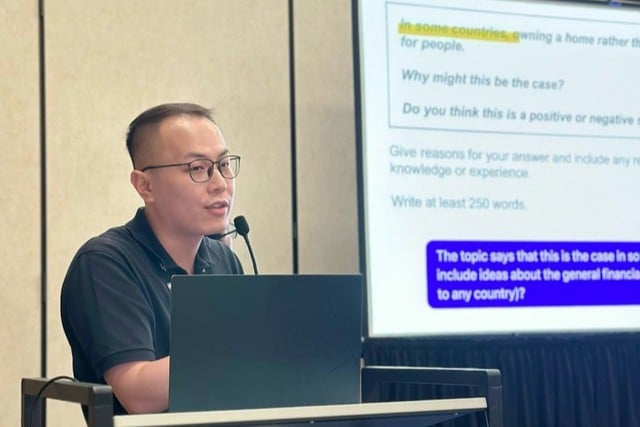
Mr. Khanh Hoang participated in presenting at the world's leading international conference on English teaching taking place in California, USA in 2024.
PHOTO: NVCC
After achieving an 8.0 in speaking in 2019, Mr. Hoang began to improve his writing skills, which were only 7.5. The male lecturer bought a book from an author specializing in IELTS preparation and then proactively asked the author to evaluate his work. In addition, he also learned from colleagues at the office, as well as became more familiar with academic English thanks to participating in research at the graduate level.
"Looking back on the past, I think that no matter how important self-study ability is, it needs proper guidance from the beginning. There is a lot of information and tips for IELTS preparation online, but not all sources are accurate. If you study in the wrong direction, it will easily become a habit that is difficult to change. Therefore, you should find a place to build a foundation, and once you have a good foundation, self-study will be easier and smoother," Mr. Hoang concluded.
What does the owner of IELTS 9.0 advise?
In speaking skills, lecturer Le Khanh Hoang advised candidates not to memorize but to focus on reflexes, because "examiners are trained to detect sample answers and will deduct points heavily". Examiners also pay attention not only to whether candidates pronounce each word correctly or incorrectly, but also to the factors of chunking (dividing sentences into small segments), rhythm, intonation and stress.
"Many students are also afraid that answering I don't know will result in a deduction of points, but it's actually okay. Like the last exam, the examiner asked me why Vietnam usually only teaches art to middle school and not to high school, I said straight out I don't know, that 's just how our school system works, the examiner was ok and moved on to the next question," he recalled.
"The examiner only scores your language ability, not your knowledge, unless what you say is inconsistent or off-topic," the male lecturer emphasized.

Mr. Khanh Hoang and Vietnamese colleagues at an international conference on English language teaching held in Cambodia in 2023.
PHOTO: NVCC
In terms of writing skills, Mr. Hoang's Task 1 question in the recent exam was a line graph of crime in two regions, while Task 2 required him to present his opinion on whether it was better for the government to subsidize fruits and vegetables or tax unhealthy foods.
In Task 1, because the data changes over time in the graph, in the overview section, Mr. Hoang clearly states the general trend, points out the similarities and differences, and compares the rankings of the lines. In the body, the male lecturer writes according to each line instead of each time point to avoid repeating words. "In Task 2, I write one argument per paragraph, mainly explaining and using specific evidence to clarify the idea," he said.
"Many people are afraid that if they don't choose one of the two, they will lose points, but in fact, when the question asks for opinions, you just write whatever comes to your mind, without having to follow the ideas of the person who wrote the question. People are also afraid that each paragraph must have 2-3 ideas to be enough, but trying to think of 2-3 ideas to cram into 1 paragraph without developing each idea clearly will also lower your score," he emphasized.
In reading and listening skills, the young man from Ho Chi Minh City said he had to face difficult questions. Giving advice to candidates in the reading section, he said they should read the entire text to understand the meaning, not just look at the first and last sentences and then choose. In the listening section, the male lecturer advised candidates to practice taking notes of information, not just pay attention to keywords in the questions.
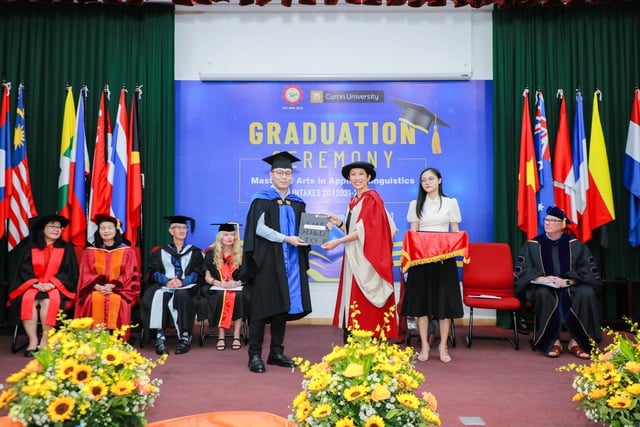
Mr. Khanh Hoang received a master's degree from Curtin University (Australia) as valedictorian in 2023.
PHOTO: NVCC
In addition to IELTS 9.0, Master Hoang previously achieved a CPE certificate of grade A, and was sponsored by the US diplomatic agency to attend several conferences on teaching English as a Second Language (TESOL) in the US and Cambodia to share about the topic of using AI (artificial intelligence) in pedagogical activities. "In the future, I plan to pursue a PhD, but I still have to research and explore more to see what I really like before making a decision," Mr. Hoang shared.
Source: https://thanhnien.vn/giao-vien-dat-ielts-90-dung-so-tra-loi-i-dont-know-toi-khong-biet-185250703172440556.htm














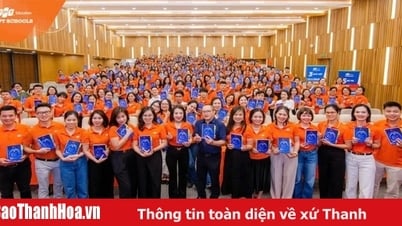

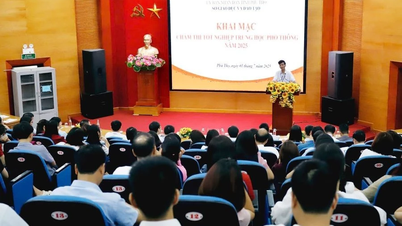



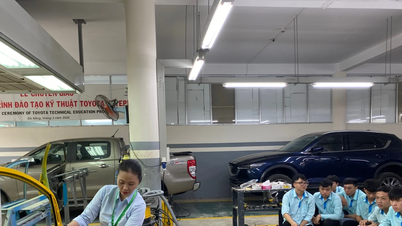
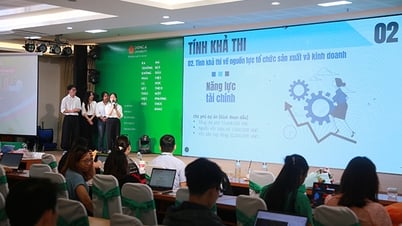

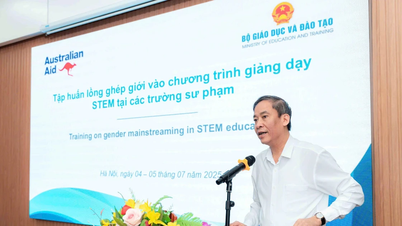

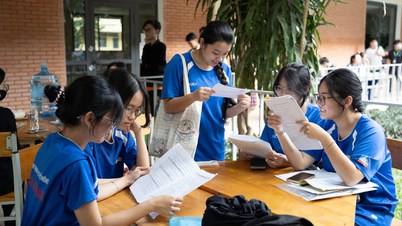






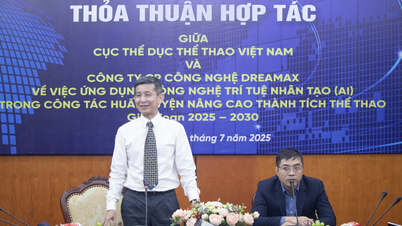
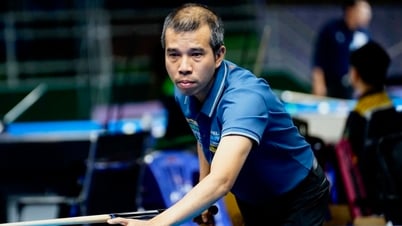











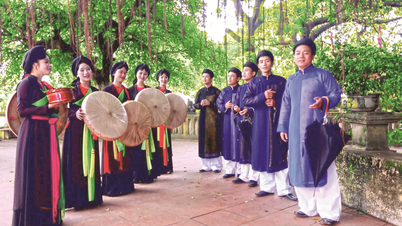








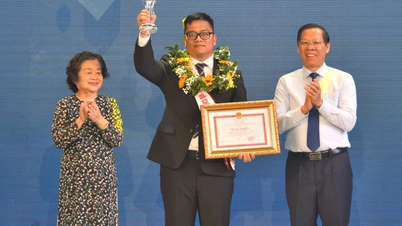









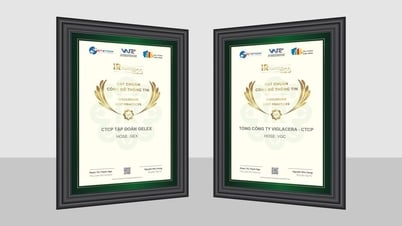









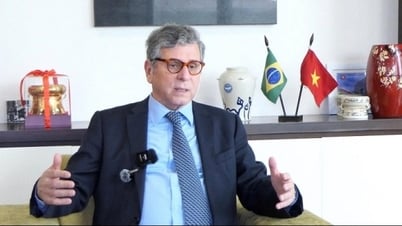




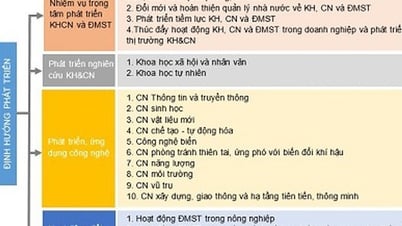






















Comment (0)